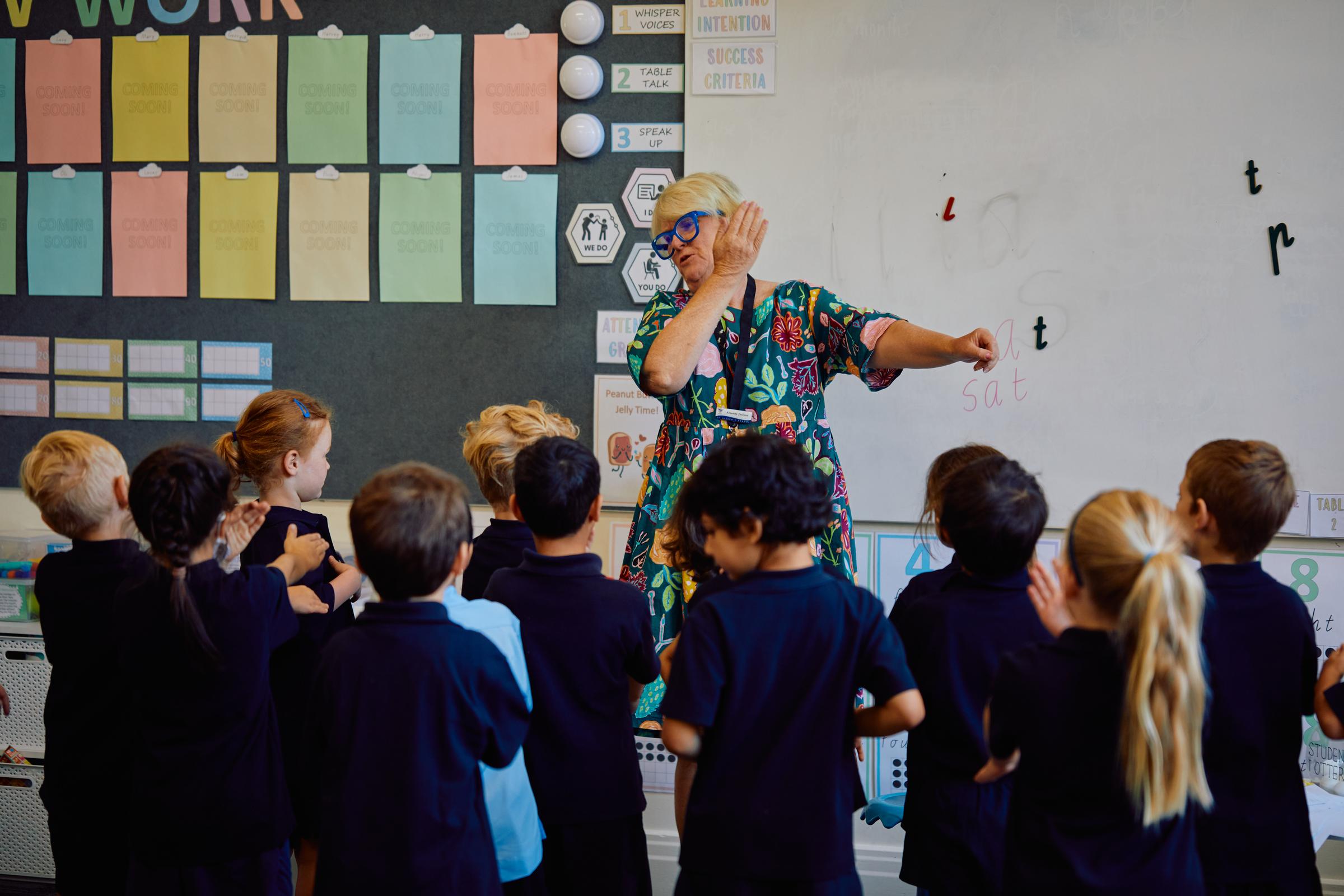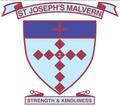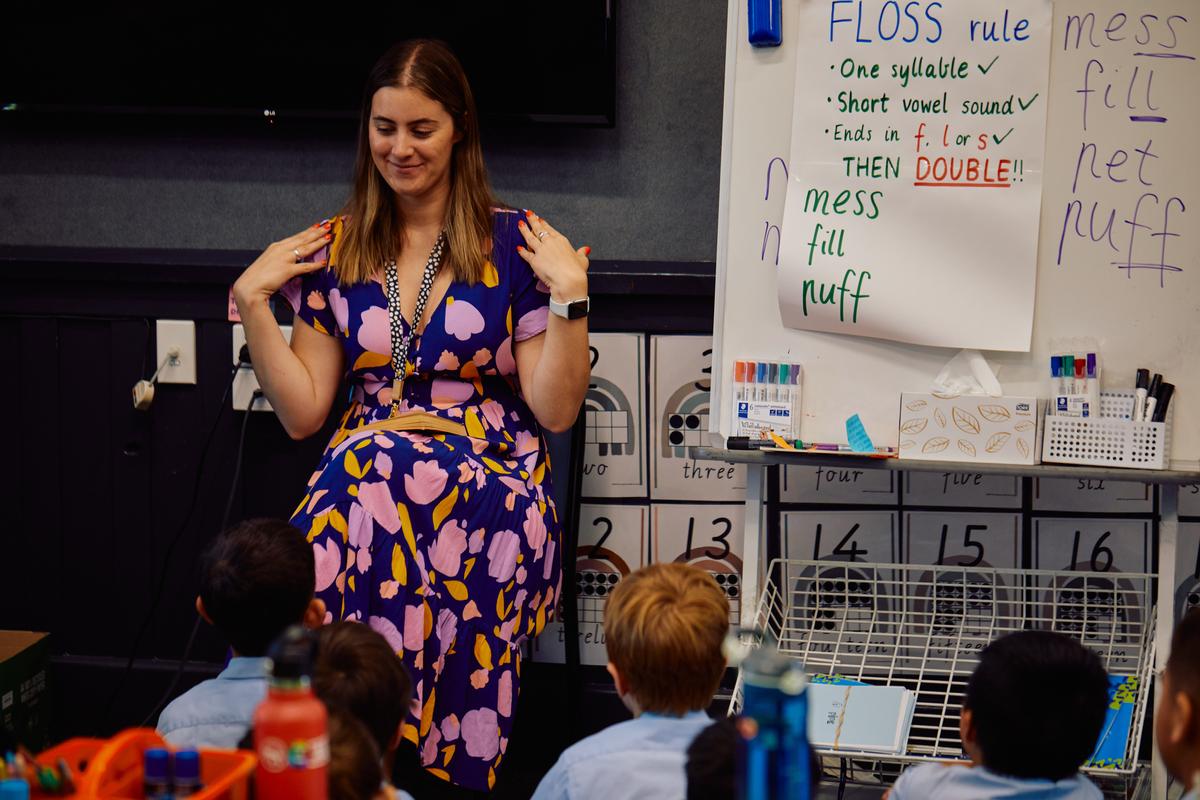Structured Literacy News

Dear parents,
At St Joseph’s, between 9am and 9.25am, we explicitly teach phonics and spelling from Prep to Year 6. We use three direct instruction programs during this time, MSL (Multisensory Structured Language) Spelling Mastery, and Oxford Improve Your Spelling (Year 7 and 8 levels).
At the beginning of the year, students from Prep to Six are assessed using PAT Spelling, MSL pre-test and South Australian Spelling test (all standardised tests) to determine their point of need. We use these assessments to place the students into the program which best caters for their learning.
We are extremely fortunate to run all of these programs in the school. MSL is taught mainly in the Prep, One and Two classrooms.
MSL is a thoroughly researched, evidence-based approach that applies proven knowledge of how the brain works and learning theories to how students most effectively learn to read and write. It incorporates the 5 essential steps to reading and writing success: identifying letter sounds, sounding out words, fluency, accuracy and comprehension.
Our teachers provide students with clear explanations of the relationships between phonics, spelling rules and the meanings of word parts (morphology) whilst simultaneously using multiple senses (auditory, visual and kinaesthetic-tactile) to form stronger neural pathways in the brain. This helps to embed learning in long-term memory.
At St. Joseph’s we use the most up to date and reliable research and evidence to understand how a child learns to read and write. Frequently, we are approached by different State and Catholic Schools to come and see all the wonderful work we are doing at St. Joseph’s in reading, writing and spelling. The buzz is out there that St Joseph’s Primary School in Malvern are doing amazing work in Structured Literacy and many teachers from other schools are asking to come and find out more.
Spelling Mastery uses specific strategies that encourage students to think their way through spelling rather than memorize weekly lists. Each lesson includes practise on more than one skill, pattern or rule. Initially, the students receive a great deal of assistance and guidance in learning the skills and as the lessons progress the assistance gradually fades until the students apply the skill independently.
There are three approaches to the Spelling Mastery program. These are whole word, phonemic and morphemic.
Whole Word
This approach requires students to memorize the spelling of individual words which do not fit into spelling generalisations or patterns.
Phonemic
This approach involves teaching students the letters for various sounds, such as the sound /n/ is spelled with the letter n.
Morphemic
The morphemic approach teaches students to spell units- bases and affixes of words and to put them all together to form words.
| Morphographs Words Formed | |||
| Prefixes | Bases | Suffixes | |
re- dis- un- | cover pute | -ed -able | coverable, covered, discover, discoverable, discovered, disputable, dispute, disputed, recover, recovered, reputable, repute, uncover, undiscovered |
In Spelling Mastery, each student receives a workbook at their assigned level. The levelled books are determined through a specific Spelling Mastery Placement Test as well as The South Australian Spelling Test. These assessments identify any spelling skills, patterns or rules that need to be targeted and taught. Again we are teaching the students at their point of need. In Spelling Mastery it is expected that the students get all their spelling tests correct, as this means they have mastered the learning. At 9:00 a.m. Monday to Thursday all students move to their assigned Spelling program for 25 minutes. For this reason, it is extremely important that students arrive at 8:55 a.m. so that they don’t miss out on any explicit teaching in phonics and spelling.
Some students who have completed all the Spelling Mastery programs will work on Oxford Book 3 Improve Your Spelling with Kate Callinan or Clare Smith. The assessment data of these students reveal they are working at a spelling age of 16 years and above. At St Joseph’s we know it is important to challenge all students in their learning and meet their point of need and as well as working through the book, the students will continue to explore morphology and etymology.
If you have any queries regarding MSL, Spelling Mastery or Oxford Book 3 Improve Your Spelling, please email me.
Thank you,
Amanda Jackson
amanda.tamplin@sjmalvern.catholic.edu.au


